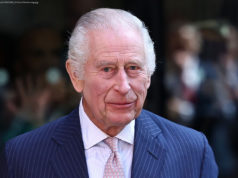The question is not what the new world order would be, but rather if the U.S. and its allies can reverse the erosion of the past century’s gains.
DUBAI – «Are we ready for the new world order?» The provocative title of the panel that lead off the ambitiously named World Government Summit here last week was framed to suggest that a new global order is emerging — and the world is not ready for it. There has been a proliferation of writing about who will shape the future world order since Russian President Vladimir Putin launched his invasion of Ukraine on Feb.24, the most murderous Europe has suffered since 1939. The tempting conclusion: Should Ukraine survive as an independent, sovereign, and democratic country, the U.S.- and Europe-backed forces will regain momentum against the previously ascendant Russian-Chinese forces of authoritarianism, oppression and (at least in Putin’s case) evil. That sounds like good news, but there is a downside. «The Russian invasion of Ukraine and a series of COVID-related shutdowns in China do not, on the surface, appear to have much in common,» writes Atlantic Council fellow Michael Schuman in The Atlantic (a publication not related to the Council). «Yet both are accelerating a shift that is taking the world in a dangerous direction, splitting it into two spheres, one centered on Washington, D.C., the other on Beijing.» My conversations in Dubai — at the World Government Summit and at the Atlantic Council’s Global Energy Forum — show little enthusiasm or conviction for this bifurcated vision of the future. The Middle Eastern participants have no interest in abandoning relations with China, the leading trading partner for Saudi Arabia and the United Arab Emirates, or breaking with Russia, which established itself as a force to be reckoned with when it saved Syrian President Bashar al-Assad through its military intervention in his war. Beyond that, our Mideast partners have lost confidence in America’s commitment to global leadership or competence for it following last year’s botched Afghanistan withdrawal. They are also experiencing whiplash from a Trump administration that trashed the nuclear deal with Iran to a Biden administration they feel is pursuing it without sufficiently factoring in Tehran’s regional aggression. In all my many travels to the Mideast over the years, I have never heard this level of frustration from Mideast government officials with American policymakers. That said, they are watching Ukraine with fascination, because a Ukrainian victory — with a strong, united West behind it — would force a rethink about U.






